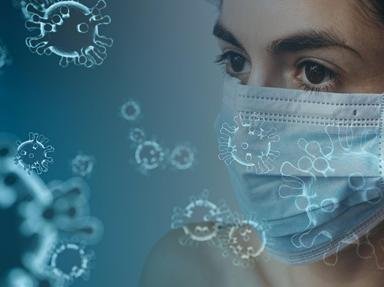Quiz Answer Key and Fun Facts
1. Can a urinary tract infection be sexually transmitted?
2. Herpes can be cured by the use of antiviral agents.
3. What is the medical abbreviation for a virus that can cause genital warts?
4. How many U.S. chlamydial infections were reported in 1998?
5. Untreated gonorrhea can lead to pelvic inflammatory disease in women.
6. Which of these is NOT a stage of syphilis?
7. What is the incubation period for trichomoniasis?
8. Many sexually transmitted diseases are transmitted simultaneously.
9. A pregnant woman with genital warts must have a Caesarean section.
10. Condoms prevent all STDs.
Source: Author
Morrigan716
This quiz was reviewed by FunTrivia editor
crisw before going online.
Any errors found in FunTrivia content are routinely corrected through our feedback system.

